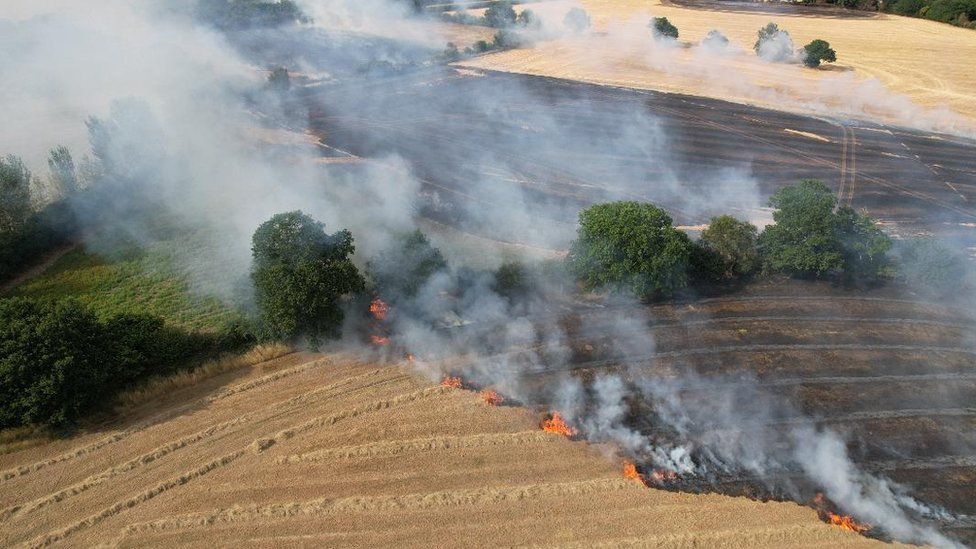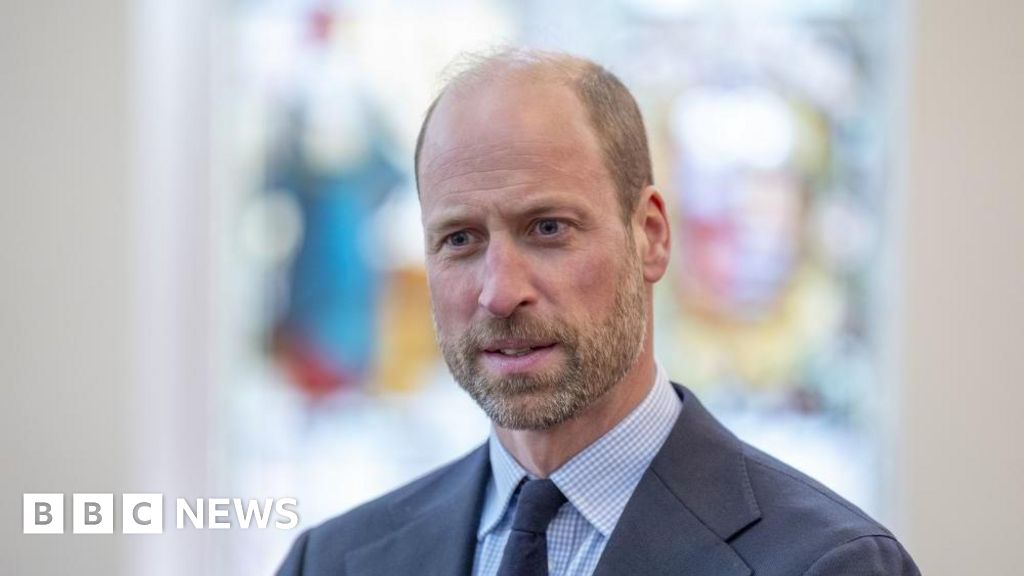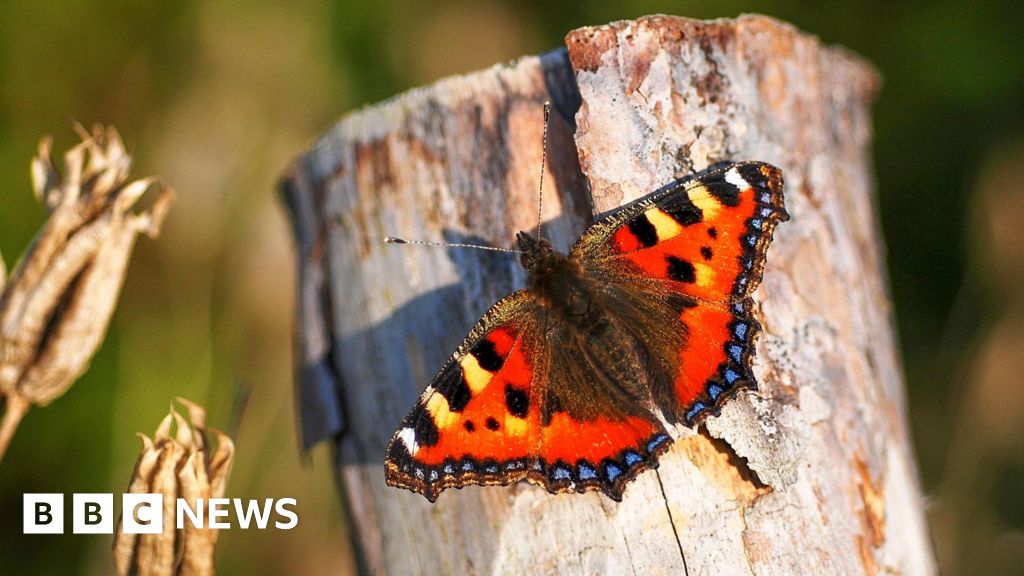ARTICLE AD BOX
 Image source, Getty Images
Image source, Getty Images
There were more than 44,000 grassland, woodland and crop fires last year
By Malcolm Prior
BBC News rural affairs producer
The UK is "woefully underprepared" to tackle wildfires as climate change makes them more likely, a new report by the Fire Brigades Union warns.
There were more than 44,000 wildfires last year - an increase of 72% on the previous year, according to government figures out this month.
Union chiefs say the government and the National Fire Chiefs Council have failed to develop a national strategy.
The government said it was ensuring services have the resources needed.
A spokesperson for the NFCC said it "has consistently made clear to government and fire service partners that the impact of climate change will continue to put huge pressure on fire and rescue services in the years ahead".
Climate change is making the weather conditions needed for wildfires to spread more likely, according to the UN's climate body, the IPCC. Extreme and long-lasting heat like that seen in the UK in the summer of 2022 draws more and more moisture out of the ground and vegetation.
The Fire Brigades Union (FBU) report found understaffing meant fire services tackling recent wildfires have had to leave fire engines sitting idle in stations and call in off-duty staff to work extra shifts, while firefighters at the scene were "worked to exhaustion".
It estimates that 12,000 firefighter jobs have been lost since 2010.
Matt Wrack, the FBU's general secretary, said: "We need urgent climate action. If we are to properly protect life and property from wildfires, the fire and rescue service needs significant investment.
"This means more firefighters, better equipped and trained, along with better planning, research and coordination."
Image source, BBC/Malcolm Prior
Image caption,Many wildfires burn where the countryside meets the urban edge
The latest government report on the number of fires last year found an "exceptional increase" in outdoor blazes that "can be linked to the hot, dry summer". In July 2022, there were 21,246 outdoor fires - nearly trebling the previous July's figure.
Wildfires included a number on the "urban-rural interface", where the countryside meets homes, the report said.
It has also been estimated that, on and around 19 July 2022, around 95 buildings were destroyed including 16 homes in Wennington, in the London borough of Havering.
A major incident review released this July, after a Freedom of Information request by the BBC, found firefighter shortages meant 39 fire engines were not available to attend wildfires that burnt across London that day.
The FBU is now calling for a UK-wide wildfire strategy for fire and rescue services that sets national standards.
It said that, at present, there is a "postcode lottery of wildfire response".
About 95 buildings were destroyed on or around 19 July 2022
Better recruitment and retention of retained firefighters in rural areas is needed, it added, and greater central government investment in training, crew numbers and PPE - including the introduction of body-worn physiological monitors for firefighters and specialist respiratory protection.
The Home Office said that overall, fire and rescue authorities are receiving £2.6bn during 2023/24 and it was down to each authority how that money was spent.
Every authority also has to have a plan in place which sets out how they intend to respond to foreseeable risks in their area, including wildfires.
A spokeswoman said the department was working closely with both the NFCC and the England and Wales Wildfire Forum, a multi-agency body, to "continue to improve our response to wildfires and reduce their impact".
The NFCC said it was "extremely proud of the fantastic, professional response of UK firefighters and 999 control staff in tackling wildfires and protecting local communities".
It said it would continue to ensure all future funding decisions are "fully informed by, and reflect, the current and future risks that fire services face, including the growing effects of climate change and the impact of wildfires, flooding and other events".

 1 year ago
38
1 year ago
38








 English (US) ·
English (US) ·